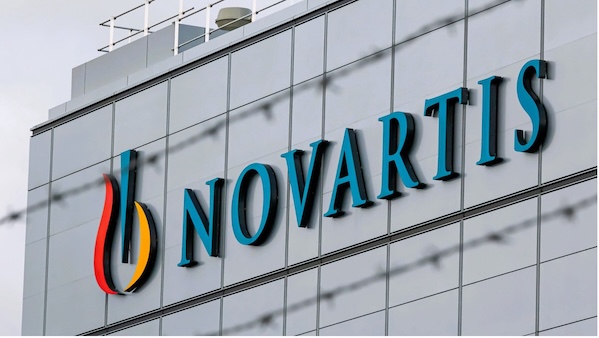Novartis ‘ major new drug successfully completed Phase III
August 14, 2025
Source: drugdu
 150
150
 On August 11, Novartis announced that its anti-BAFF-R monoclonal antibody Ianalumab (VAY736) achieved the primary endpoint in two Phase III clinical trials in patients with Sjögren's syndrome.
On August 11, Novartis announced that its anti-BAFF-R monoclonal antibody Ianalumab (VAY736) achieved the primary endpoint in two Phase III clinical trials in patients with Sjögren's syndrome.
Currently, there are no approved systemic therapies for Sjögren's syndrome worldwide, and symptomatic treatments can only temporarily and partially relieve symptoms. Ianalumab is expected to end the history of Sjögren's syndrome with no targeted drug available.
Ianalumab is a novel, fully human monoclonal antibody targeting the B lymphocyte activating factor receptor (BAFF-R). It eliminates B cells through antibody-dependent cell-mediated cytotoxicity (ADCC) while simultaneously blocking BAFF-R-mediated B cell function and survival signals. The drug comes from Novartis' partner Morphosys, which was acquired by Novartis for €2.7 billion in 2024.
The drug is currently being developed for the treatment of a variety of B cell-driven autoimmune diseases, including Sjögren's syndrome, immune thrombocytopenia (ITP), systemic lupus erythematosus (SLE), lupus nephritis (LN), warm antibody autoimmune hemolytic anemia (wAIHA) and diffuse cutaneous systemic sclerosis (dcSSc).
NEPTUNUS-1 and NEPTUNUS-2 are the first Phase III clinical trials for Sjögren's syndrome conducted globally. The primary endpoint was improvement in systemic disease activity as assessed by the European League Against Rheumatism Sjögren's Syndrome Disease Activity Index (ESSDAI). Patients who complete the trials are eligible for long-term extension studies.
The results showed that both studies met their primary endpoint, with the analumab group achieving a statistically significant improvement in disease activity. Furthermore, analumab was well tolerated and safe.
Sjögren's syndrome is far more than a simple "dryness" problem; it is a chronic systemic autoimmune disease characterized by autoimmune destruction of exocrine glands. Clinical manifestations vary widely, ranging from mild cases to annoying dry eyes, dry mouth, and parotid gland enlargement, to severe cases experiencing systemic damage to multiple organ systems. Diagnosis of this disease is challenging, as symptoms often overlap with other conditions and the causes of dryness symptoms are diverse. This often leads to missed or misdiagnosed cases, significantly impairing patients' quality of life.
Sjögren's syndrome has long been a significant unmet medical need. Globally, no specific medication for the disease has been approved. Clinical treatment primarily relies on limited symptomatic therapies, which can provide temporary and partial symptom relief.
While biologics have achieved breakthroughs in the treatment of various autoimmune diseases in recent years, the development of biologics for Sjögren's syndrome has been relatively slow, with no marketed products yet. According to Yaozhi Data, the global pipeline of Sjögren's syndrome biologics currently in Phase III clinical trials includes Novartis's ianalumab, Argenx's efgartigimod, Johnson & Johnson's nipocalimab, Resolve Therapeutics' RSLV-132, Amgen's dazodalibep, and Bristol-Myers Squibb's abatacept. Furthermore, Rongchang Biopharma's tadalafil (tetrasip) from China has also entered Phase III.
Novartis said it will present detailed data from both studies at an upcoming medical conference and plans to submit a marketing application for Ianalumab. Ianalumab has previously received Fast Track designation from the US FDA and is expected to become the first targeted therapy for the chronic and debilitating autoimmune disease Sjögren's syndrome.
https://news.yaozh.com/archive/45902.html
By editorRead more on
- Rovaxitinib approved for marketing, filling the demand for myelofibrosis treatment March 2, 2026
- Warrant Pharmaceuticals’ active pharmaceutical ingredient receives Brazil’s first official GMP certification March 2, 2026
- Merck’s New Story March 2, 2026
- Rongchang Biotechnology has turned a profit! March 2, 2026
- Jiuyuan Gene’s “Simeglucopyranoside” for weight loss (Jikeqin®) has been submitted for market approval March 2, 2026
your submission has already been received.
OK
Subscribe
Please enter a valid Email address!
Submit
The most relevant industry news & insight will be sent to you every two weeks.



